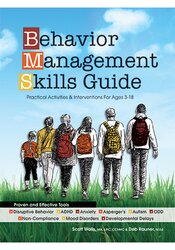TOPIC
Child’s Challenging Behavior
All children can be defiant, fussy, whiny, hurtful to others, excessively angry, withdrawn, constantly crying, or refuse to eat or sleep—once in a while. But when these behaviors become habits, it becomes a big challenge for parents and caregivers to be as loving, patient, persistent, and creative as possible. Many of these are normal behaviors and will resolve with simple strategies, but sometimes they become something more serious. Whether the child is in distress and communicating their stress and frustration the only way they know how, or whether the child’s personality requires a non-standard strategy to navigate around, experts from many backgrounds have suggestions.
If you or someone you know is in immediate need of support, please seek professional help. If you are in crisis, here are some immediate free resources.
FILTER

TOPIC
- Child’s ADD/ADHD (78)
- Neurodiversity (74)
- Mental Health Challenges (70)
- Child’s Anxiety (70)
- Autism (69)
- Access to Education (68)
- ADD/ADHD (68)
- Young Adult Well-Being (66)
- Learning Styles (66)
- Identity (66)
- Self-Discovery (66)
- Asking for Help (65)
- Offering Support to Others (65)
- Academic Struggles (65)
- Self-Reflection Practices (65)
- Grief (65)
- Communication Skills (65)
- Child’s Social Media Addiction (65)
- Child Depression (65)
- Digital Life (64)
- Connection (64)
- Transitions (64)
- Self-Acceptance (64)
- Self-Worth (64)
- Honoring Emotion (64)
- Criticism and Rejection (64)
- Mentoring (64)
- Social Justice (64)
- Activism/Service (64)
- Talk Therapy (64)
- Setting Limits and Boundaries (64)
- Resilience (64)
- OCD (64)
- Memory (64)
- Inner Strengths (64)
- Gratitude (64)
- Depression (64)
- Managing Energy (63)
- Emotional and Mental Health (63)
- BIPOC Well-Being (63)
- Suicide (63)
- Cognition (63)
- Burnout (63)
- Time Management (62)
- LGBTQIA Well-Being (60)
- Gender Identity (60)
- Confidence (59)
- Curiosity (59)
- Optimism (58)
- Play (56)
- Search for Purpose (55)
- Family Therapy (54)
- Decision Making (50)
- Failure (50)
- Relationship with Money (50)
- Cognitive Psychology (48)
- Imagination and Creativity (47)
- Trauma (46)
- Finding Meaning (46)
- Facing Own Death (46)
- Existentialism (46)
- Genetics (44)
- Problem Solving (44)
- Child’s Trauma (43)
- Psychology (42)
- Family Dynamics (42)
- Motivation (41)
- Goal Setting (40)
- Imposter Syndrome (39)
- Self-Pressure (39)
- Self-Limiting Beliefs (39)
- Bullying (37)
- Epigenetics (36)
- Social Psychology (36)
- Empathy (32)
- Social Anxiety (31)
- Traumatic Grief (29)
- Life Challenges (29)
- Neuropsychology (27)
- Stress Management (26)
- Unconscious Bias (23)
- Focus (23)
- Anxiety (23)
- Masculine/Feminine Dynamics (22)
- Male Friendship (22)
- Challenges with Teens (19)
- Doubt (12)
- Caregiver Well-Being (8)
- Neuroscience (7)
- Shame (4)
- Self-Harm (4)
- Handling a Child’s Illness (4)
- Compassion (4)
- Growth Mindset (3)
- Disabled Well-Being (2)
- Foster Parenting (2)
- Adoption (2)
- Fatherhood (2)
- Self-Reliance (2)
- Cognitive Behavioral Therapy (2)
- Family Acceptance (1)
- Fiction (1)
- Memoir (1)
- Raising Nonbinary Children (1)
- Raising Daughters (1)
- Cross-Cultural Parenting (1)
- Unfulfilled Career (1)
- Physical Health (1)
- Self-Control (1)
- Conflict Resolution (1)
- Art Therapy (1)
- Acceptance (1)
- Highly Sensitive People (1)
- Connection with Nature (1)
- Motherhood (1)
- Self-Love (1)
- Trauma Healing (1)
- Community Healing (1)
- Authenticity (1)
- Positive Psychology (1)
- Happiness (1)
- Habit Formation (1)
- Leadership (1)
- Building Character (1)
- Intimacy (1)
- Guilt (1)
- Self-Development (1)
- Global Challenges (1)
- Environmental Exploitation (1)
- Climate Change (1)
- Work-Life Balance (1)
- Somatic Practices (1)
- Self-Realization (1)
- Self-Mastery (1)
- Self-Esteem (1)
- Self-Actualization (1)
- Social Presence (1)
- Polyvagal Theory (1)
- Obsessions/Compulsions (1)
- Nightmares (1)
- Forest Bathing (1)
- Meditation (1)
- Hypnosis (1)
- Adjusting to Parenthood (1)
- Healing Approaches (1)
- Gaming Addiction (1)
- EMDR (1)
- Dysfunctional Childhood (1)
- Loss of Partner/Spouse (1)
- Handling a Loved One’s Illness (1)
- Compulsive Lying (1)
- Attachment Theory (1)
- Anger Management (1)
WHAT MIGHT HELP
The information offered here is not a substitute for professional advice. Please proceed with care and caution.
EXPLORE RELATED TOPICS
- Adjusting to Parenthood
- Adoption
- Blended Families
- Challenges with Teens
- Child’s Emotional Growth
- Children’s Well-Being
- Co-Parenting
- Cross-Cultural Parenting
- Fatherhood
- Foster Parenting
- Kids and Sports
- LGBTQIA Children
- LGBTQIA Parents
- Motherhood
- Pregnancy and Childbirth
- Raising Daughters
- Raising Nonbinary Children
- Raising Sons
- Parenting
- Child Defiance
- Child’s ADD/ADHD
- Child’s Autism
- Neurodiversity
- Child’s Anxiety
UP NEXT
Parenting
Want More Like This?
To continue customizing your FindCenter experience, create an account. It’s free!
Create an account to discover wisdom, save your favorite content, and connect with teachers and seekers.
IT’S FREE
If you already have an account, please log in.





 Now that I’m an adult, I realize that kids know at a very young age when they’re being devalued, when adults aren’t invested enough to help them learn. Their anger over it can manifest itself as unruliness. It’s hardly their fault. They aren’t ‘bad kids.
Now that I’m an adult, I realize that kids know at a very young age when they’re being devalued, when adults aren’t invested enough to help them learn. Their anger over it can manifest itself as unruliness. It’s hardly their fault. They aren’t ‘bad kids.



